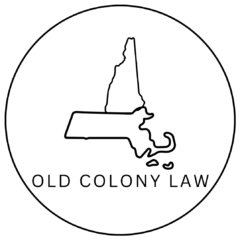Alison Kuznitz at MassLive.com covers some of the reaction to the Healey Administration’s proposal to lift the Massachusetts estate tax threshold:
Healey on Monday pitched overhauling the estate tax and short-term capital gains tax as a critical strategy to staunch an outward migration of Bay Staters and companies, as well as to lure newcomers who might be wary of the commonwealth’s current tax code. The package — which Healey said hinges on the pillars of affordability, equity and competitiveness — incorporates a centerpiece $600 child and family credit, plus increases to the rental deduction cap and senior circuit breaker, among other measures.
But Evan Horowitz, executive director of the Center for State Policy Analysis at Tufts University, said he’s “underwhelmed” at Healey’s attempt to elevate Massachusetts’ economic vibrancy without doubling down on “real solutions” to support new or expanding businesses here.
“There are some tax cuts that help wealthy people that are also good for competitiveness. And then there are some tax cuts that just help wealthy people, and these are closer to the latter,” said Horowitz, as he invoked Healey’s estate tax and short-term capital gains proposals.
The Greater Boston Chamber of Commerce and the Massachusetts Society of CPAs, for example, had proposed eliminating the “sting tax” on S corporations and expanding the single sales factor tax for businesses that operate in multiple states.
Healey didn’t include those recommendations in her tax package to support the business community — and Horowitz said it’s unlikely the House of Representatives or Senate will either due to a lack of research to date on the measures.
But Healey did propose raising the estate tax threshold from $1 million to $3 million while introducing a nonrefundable credit of up to $182,000 on all estates to address the so-called cliff effect that currently kicks in at the first dollar. Administration officials said the adjustment, estimated to cost $167 million in fiscal 2024, would help 70% of estates that are valued below $3 million and currently subject to the estate tax.
“We want Massachusetts to be competitive,” Healey stressed to reporters Monday. “We want to be a state where people are able to come here, stay here, grow families, grow businesses here.”
The new Democratic governor also wants to slash the short-term capital gains tax from 12% to 5%, an approach former Republican Gov. Charlie Baker proposed last year without gaining support from the Legislature.
Phineas Baxandall, policy director at the progressive Massachusetts Budget and Policy Center, said those two tax code changes will cost about $400 million annually as Beacon Hill officials account for the permanent cost of the estate tax revamp.
And a different perspective:
Meanwhile, Doug Howgate, president of the Massachusetts Taxpayers Foundation, applauded Healey’s proposal to alleviate the commonwealth’s outlier tax status.
As Howgate sees it, the strategy will generate economic competitiveness, especially compared to nearby states with estate tax thresholds at or exceeding $5 million. Only 12 states impose an estate tax, and besides Massachusetts, just Oregon sets the threshold at $1 million.
Lawmakers last year seemed to settle at $2 million for a revised estate tax threshold, though the business community at the start of February urged Healey to raise it to $5 million.
“You’re not going to accomplish everything in one fell swoop. We continue to believe that moving our estate tax in line with other states that have the estate tax is an important goal,” Howgate said. “Starting with a proposal that affects 70% of folks who are currently affected by the estate tax and really does do a good job of kind of reflecting the issue of increased property values for families who might not think of themselves as wealthy is a really positive positive start.”
Although Horowitz agrees the estate tax structure should be updated — such as raising the threshold while modifying the rate to ensure Massachusetts doesn’t lose tax revenue — he criticized its inclusion in Healey’s relief package. The estate tax is tied to retirees and older residents, Horowitz said, not Bay Staters who are at their prime earning potential and actively running businesses in Massachusetts.
“The idea that using the estate tax or introducing an estate tax cut is good for business competitiveness strikes me as just fundamentally misunderstanding how people respond to the estate tax,” Horowitz said. Similarly, he argued that reducing the short-term capital gains tax “has nothing to do with economic development — it’s just a boon for people who get in, jump in and out of the stock market.”
This post is a part of Old Colony Law’s Estate Tax Updates.
